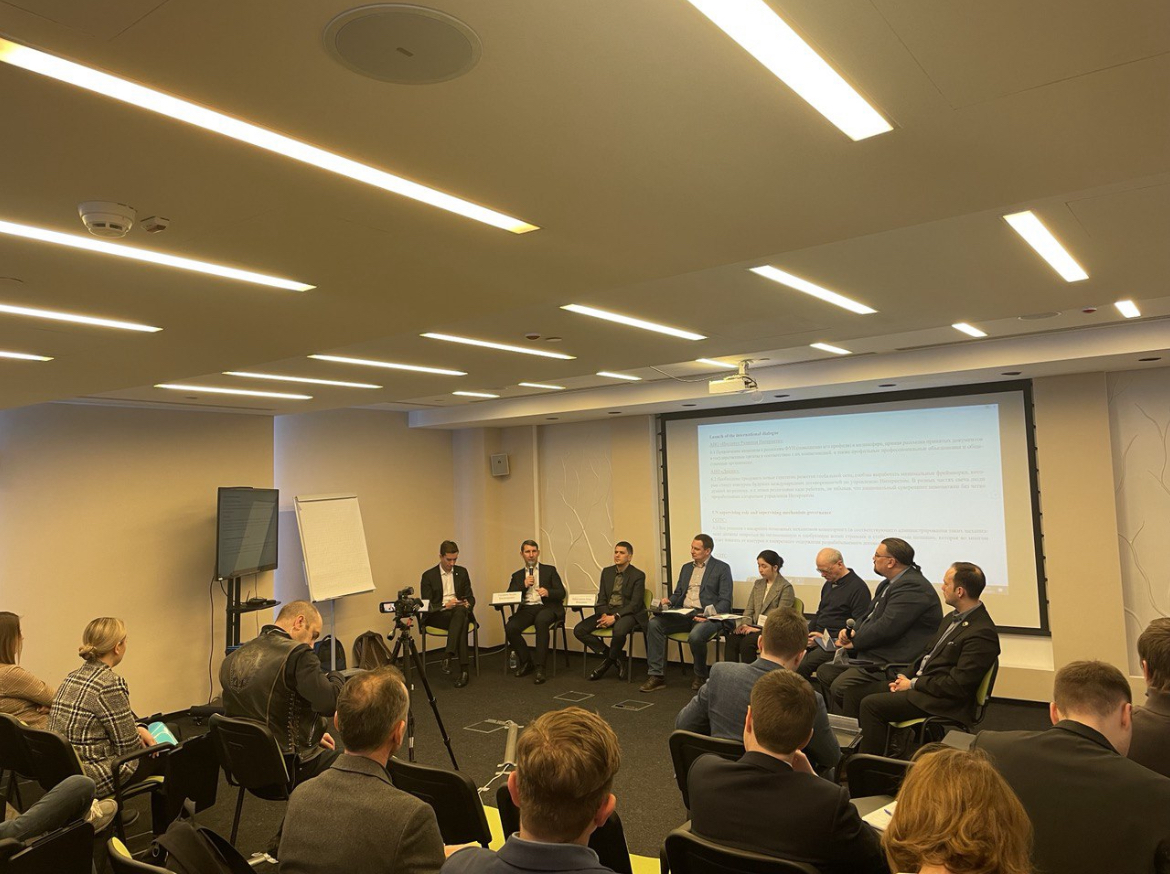
On February 16, Andrey Vorobyev, Director of the Coordination Center for TLD .RU/.РФ, took part in the “Global Digital Compact: From Ideas to Proposals” round table, organized by the Center for Global IT-Cooperation. This is the second event where experts discuss proposals for inclusion in the draft Global Digital Compact.
The wide range of experts took part in the discussion included Vadim Glushchenko, Director of the Center for Global IT-Cooperation, Vyacheslav Erokhin, Deputy Head of the Laboratory of the Scientific and Research Institute of Radio (FSBI NIIR), Andrey Vorobyev, Director of the Coordination Center for .RU/.РФ, and Lenar Fayzutdinov, First Deputy General Director of ANO Dialog; CEO of e-Legion Artyom Mikhailov, analysts of the Center Yuri Lindre and Roman Shamraev, as well as PhD and teacher of the HSE Faculty of Law Ekaterina Martynova. The round table was moderated by Roman Chukov, Chairman of the Center for Global IT-Cooperation Board.
The purpose of the meeting was to prepare Russian proposals for the Global Digital Compact. The participants analyzed what work is being done at the international level, discussed the proposals received from the Russian expert community and determined their next steps. In addition, the Center for Global IT-Cooperation presented its new study “Current Trends In Internet Regulation: From The Open Space Of Unlimited Freedom To Regional And Country Fragmentation”. The main conclusion of the document is that due to the growing contradictions between states and large digital businesses in the field of managing the World Wide Web, it is difficult to form a single, indivisible and fair digital space in the foreseeable future.
Andrey Vorobyev emphasized that the Global Digital Compact should reflect the basic principles of Internet Governance, which will later be used in the formation of a system of international treaties and national systems of legislation. “An open system of standards, global connectivity, and net neutrality, as well as a commitment to the protection of human rights and fundamental freedoms, in addition to the need to ensure the security of the public core of the Internet, are fundamental network operating and development principles that must be fixed,” he said.
Many ideas that could be included in the overall Russian experts' proposals were made during the discussion. For example, when it comes to defining business policies and national legislation. Usually, the rules for the user are developed based on the laws of the country in which the IT company is registered. But what about users from other jurisdictions? This issue can be resolved by the introduction of clear rules in the Global Digital Compact.
Separately, they touched upon the topic of expanding the role of national languages in the global network. 57% of all content on the Internet is produced in English. At the same time, the gap with the second most common language - Russian - is huge. Its share in the World Wide Web is only 5%. “It is necessary to maintain a balance so that people can communicate, as well as consume and produce content on the Internet in their native language they understand,” concluded Lenar Fayzutdinov. He also noted that the Global Digital Compact can give momentum to the search for new formats of digital cooperation that would meet the interests of the peoples living in Eurasia.
Taking into account the fruitful work within the framework of the Round Table, the experts proposed to create a discussion club based on the established informal working group on the Global Digital Compact to discuss other issues on the subject of Internet governance and digital cooperation.




